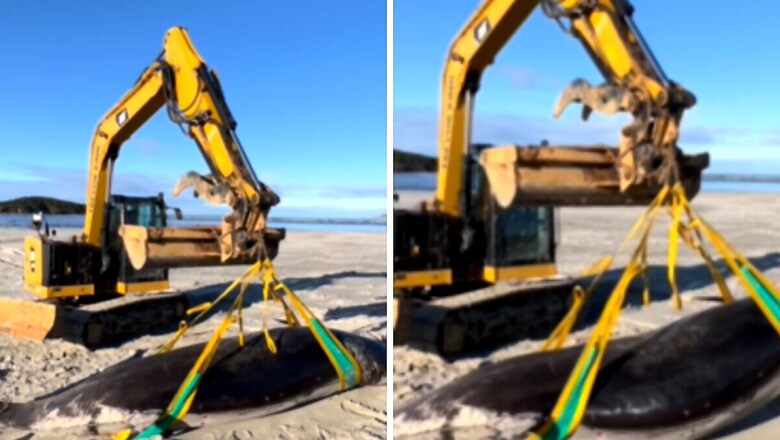
views
A mysterious whale has unexpectedly appeared on a New Zealand beach, which has left scientists excited. Found near the fishing village of Taieri Mouth, researchers believe the stranded whale might be a spade toothed whale, which according to the Department of Conservation (DOC) is “world’s rarest whale.” This offers researchers a rare chance to study an animal that has remained unknown since it was first discovered in 1872. The mammal, measuring over 16 feet long, was found dead on the beach. Initially known as the Mesoplodon traversii, named after the naturalist Henry Travers, the spade toothed whale was originally identified from just a few teeth and a jawbone.
As of now, there are not much information about this creature, including its diet, habitat and population size. Speaking with the Associated Press about the discovery, Hannah Hendriks, a marine technical adviser for the DOC shared, “We know very little, practically nothing. This is going to lead to some amazing science and world-first information. It’s very hard to do research on marine mammals if you don’t see them at sea. It’s a bit of a needle in a haystack. You don’t know where to look.”
Sharing the video on Instagram, the DOC wrote, “The world’s rarest whale has washed ashore in Otago. The spade-toothed whale is so rare only 6 specimens have ever been known to science. We are saddened to find this one has washed up deceased, but this will be a great opportunity to learn more on how we can help this cryptic species. From a scientific, cultural and conservation point of view, this is huge. We will work in partnership with Te Runanga o Otakou on next steps.”
View this post on Instagram
After the initial discovery of the spade toothed whale in 1872, another was found in New Zealand during the 1950s and bones of a third creature was discovered in Chile in 1986. DNA testing conducted in 2002 confirmed that they all belonged to the same unique species. In 2010, two more dead whales of similar species were found on a beach in New Zealand, followed by another discovery in 2017.
Kirsten Young, a senior lecturer at the University of Exeter who has researched spade-toothed whales, explained that identifying these mammals require several years of hard work. She expressed curiosity about the new find, wondering how many of these rare whales might be hiding in the deep ocean and how they live.
Meanwhile, following the recent whale discovery near Taieri Mouth, the agency mentioned that it could take them several months to complete genetic testing and confirm the whale’s identity.


















Comments
0 comment